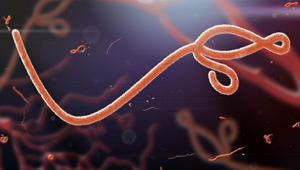Liberia was first declared free of Ebola transmission in May 2015 but the virus reappeared twice since then, with the latest flare-up in November. But the World Health Organisation today announced that 42 days, or two 21-day incubation cycles of the virus, have passed since the last confirmed patient in the country tested negative for the virus twice.
This marks the first time there have been no known cases or chains of transmission of Ebola in Liberia, Guinea or Sierra Leone at the same time.
WHO director general Margaret Chan described detecting and breaking every chain of transmission in West Africa as a “monumental achievement” for the national authorities, “heroic” health workers, civil society, local and international organisations and “generous partners” who stepped up to do what was needed.
Alex Gasasira, the WHO representative in Liberia, also commended the Liberian government for its effective response to the virus’ re-emergence. “The rapid cessation of the flare-up is a concrete demonstration of the government’s strengthened capacity to manage disease outbreaks,” he said.
WHO cautioned, however, that the three countries remain at high risk of small outbreaks like the most recent one in Liberia, which are likely due to the virus persisting in survivors after recovery.
Evidence shows that the virus, which spreads through contact with the bodily fluids of an infected person, can remain in the semen of males after recovery for as long as one year and in rare cases be transmitted to intimate partners.
To date, 10 such flare-ups that were not part of the original outbreak have been identified and more are expected.
While Bruce Aylard, WHO’s special representative for the Ebola response, said that the risk of reintroduction is gradually diminishing, those involved in the Ebola response must be prepared for anticipated flare ups.
“A massive effort is underway to ensure robust prevention, surveillance and response capacity across all three countries by the end of March. We are now at a critical period in the Ebola epidemic as we move from managing cases and patients to managing the residual risk of new infections,” he said.
Guinea and Sierra Leone were declared Ebola-free in December and November respectively. The two countries and Liberia were the worst-hit by the virus, which claimed the lives of 11,300 people and infected more than 28,600. In Liberia, 4,809 people lost their lives – more than in any other country.
The outbreak began in West Africa in December 2013, and as well as the high cost it exacted on lives, families and communities, it reversed years of development gains. The countries’ economies, health systems and social structures have been devastated by the epidemic.
Both national and international health systems seemed overwhelmed, and the slow response from the global health community in particular has exposed glaring holes in the world’s reaction to emergency health epidemics.
As the good news for Liberia and West Africa as a whole emerged, medical humanitarian organisation Médecins Sans Frontiéres, which has been widely commended for their response to the original outbreak of the virus, called on the global health community to draw on the lessons learned and be better prepared in the future.
“The Ebola response was not limited by a lack of international means but by a lack of political will to rapidly deploy assistance to help communities. The needs of patients and affected communities must remain at the heart of any response and outweigh political interests,” said Joanne Liu, MSF’s International President.
World Bank president Jim Yong Kim also urged the international community to take this opportunity to build a “smarter, swifter global pandemic response system”. In the near term, he said vigilance will be needed to stay at zero cases while helping the three countries to recover.
“Ebola’s scars will not soon fade, especially for survivors and their families, and for the heroic health workers who cared for the infected. It’s now time to heed the lessons of this epidemic,” he said.












